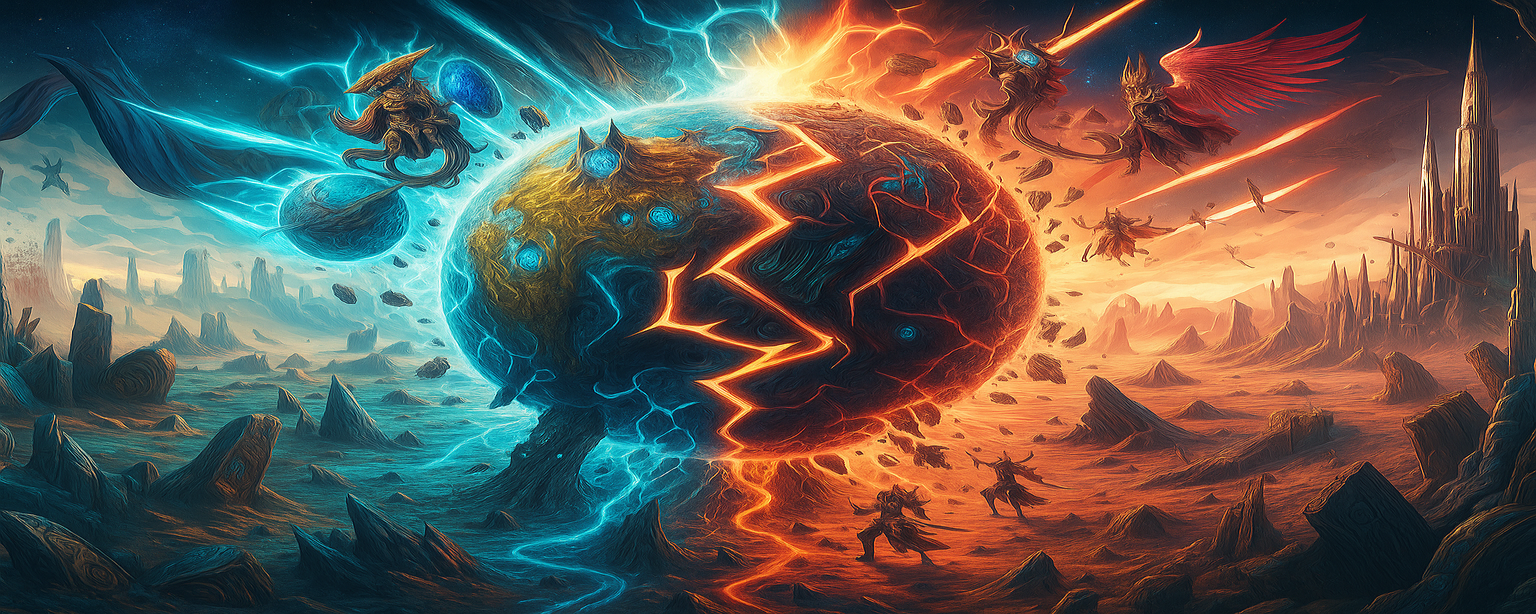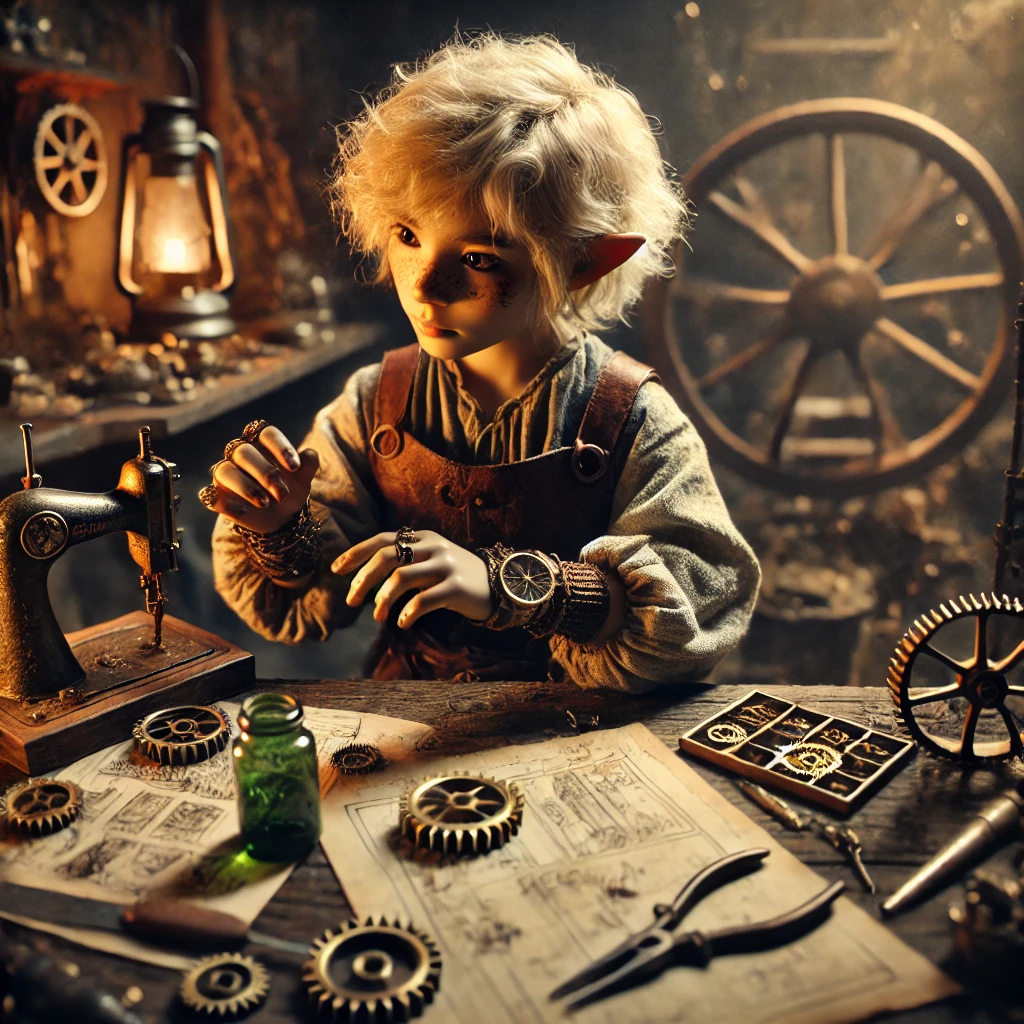The Halfling Tinkerer
I do not often think of where we come from—divinity tends to dull the importance of such things. And yet, I cannot forget Bhita’s origins. Not because they are remarkable, but because they are absurd.
She was not a queen. Not a warlord. Not a scholar. Not a hero. She was a halfling, born in a house that smelled of iron and oil, raised among scrap and invention. Her family were builders, tinkerers—brilliant in their own way but content to remain mortal. She was not.
Even then, she itched for more. She did not seek knowledge for wisdom’s sake, nor power for dominion. She wanted to make, to break, to push forward for no other reason than because she could. Perhaps that is why she was chosen.
She was not lifted into godhood by the same hand that pulled me from mortality. Creation, in its boundless patience, saw me fit to preserve knowledge. But Destruction—Destruction found Bhita and saw in her something more fitting. A mind that did not create for the sake of beauty, nor knowledge, nor legacy—but simply to replace what was.
Her ascension was not a gift. It was an experiment. And she has spent every moment since ensuring it was a successful one.
The Moment of Ascension
I remember the day she ceased to be mortal. I suspect she does not.
My own ascension was guided—shaped by the hand of Creation, bound with purpose. Bhita’s was not. She was ripped from mortality like raw metal from ore, refined in the crucible of Destruction itself.
Unlike me, she did not resist it. Unlike me, she did not question it.
She let the old Bhita burn away and emerged something else entirely. She did not seek to preserve the past. She discarded it, as she would an outdated design. Her first act as a god was to dismantle the very idea of what she had been. No hesitation. No mourning. Only progress.
I have never seen anyone abandon themselves so completely.
I have never seen anyone so utterly certain that it was the right choice.
The Unraveling of Humanity
She says she no longer cares for mortal things. That she has surpassed such limitations. That she does not need sentimentality, nor attachment, nor anything so fragile as memory.
And yet, she returns to them. Over and over.
She indulges in flesh as if it is just another material to be shaped, another resource to be studied. She has taken lovers across every territory in this continent, had children who will never know their mother was divine. I once asked her why.
She laughed.
“Why not?” she said. “Flesh is fleeting, and I enjoy the making of it.”
It is a strange thing, to be so detached from mortality yet so eager to take part in it. But perhaps that is her way—she does not love mortals, nor does she seek to guide them. She simply wishes to see what they might become.
Like raw materials waiting to be reforged.
The Cost of Progress
There is nothing she will not break if it means something better can be built in its place. Civilization, art, history—none of it is sacred to her. If it is inefficient, it must be discarded.
I have watched her tear down ancient halls to make way for factories. I have seen her turn poets into merchants, artisans into engineers. Where I see preservation, she sees stagnation. Where I see culture, she sees inefficiency.
She is not cruel. But she is merciless.
I once asked her if there was anything she would not change. Anything she would consider sacred.
She did not answer.
A Reluctant Respect
We will never agree. We were forged by opposing hands, bound to opposing principles. And yet, for all our differences, I cannot call her a failure.
She is a force. A storm that cannot be halted. She does not ask for permission. She does not wait for understanding. She simply moves forward, dragging the world with her.
She will never stop.
She will not even slow down.
Perhaps, in the end, she will unmake herself as well.
If she does, I will record it. And I will remember her, even if she does not remember herself.




Comments